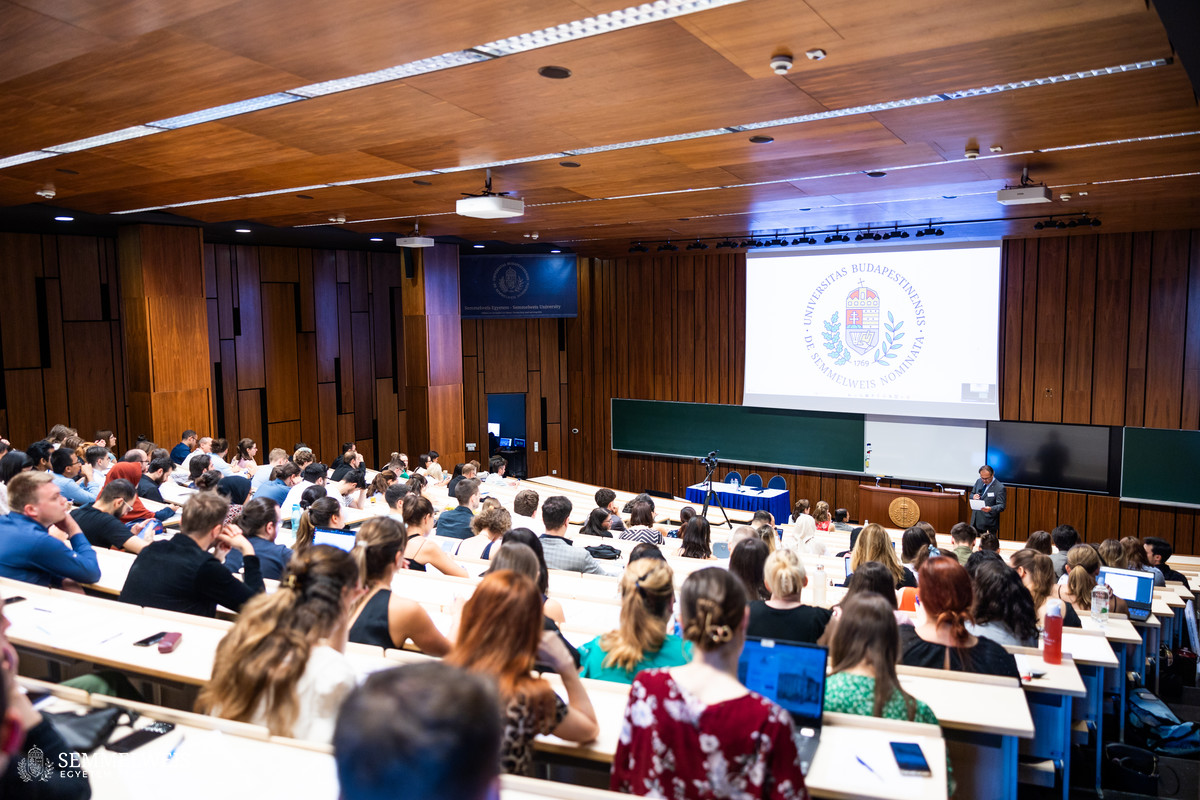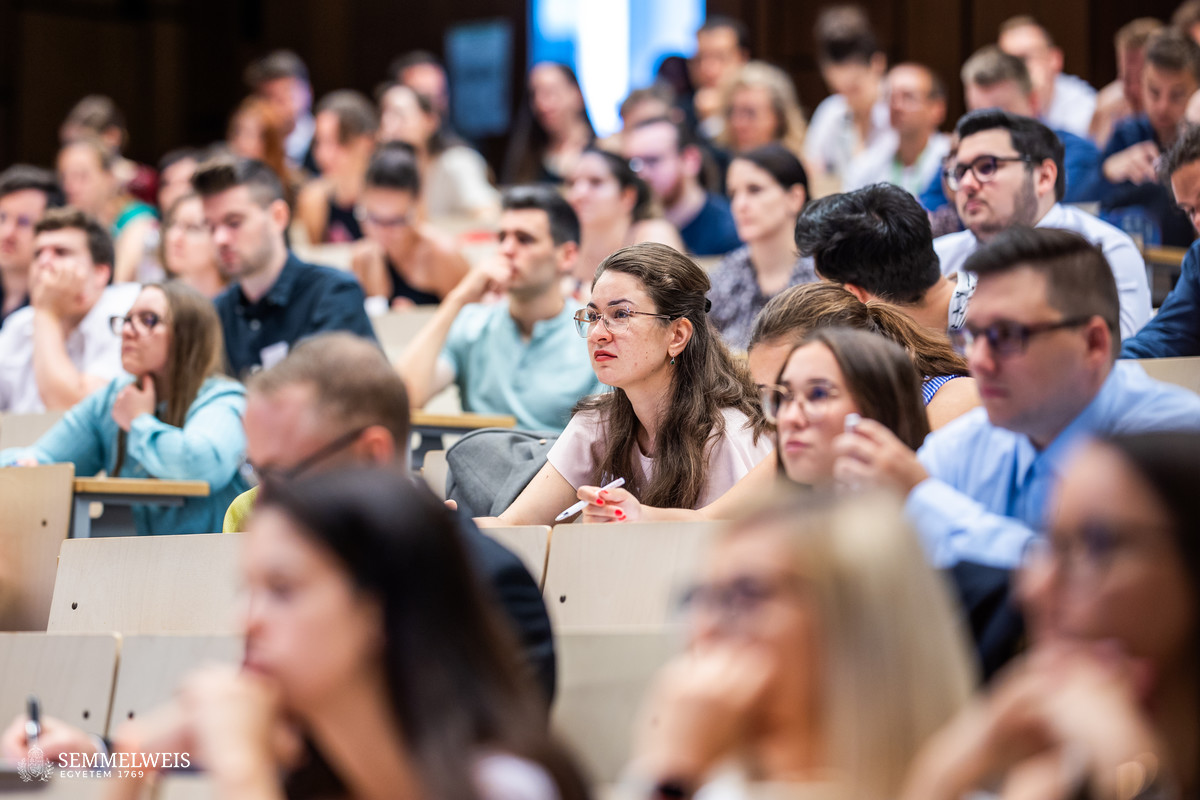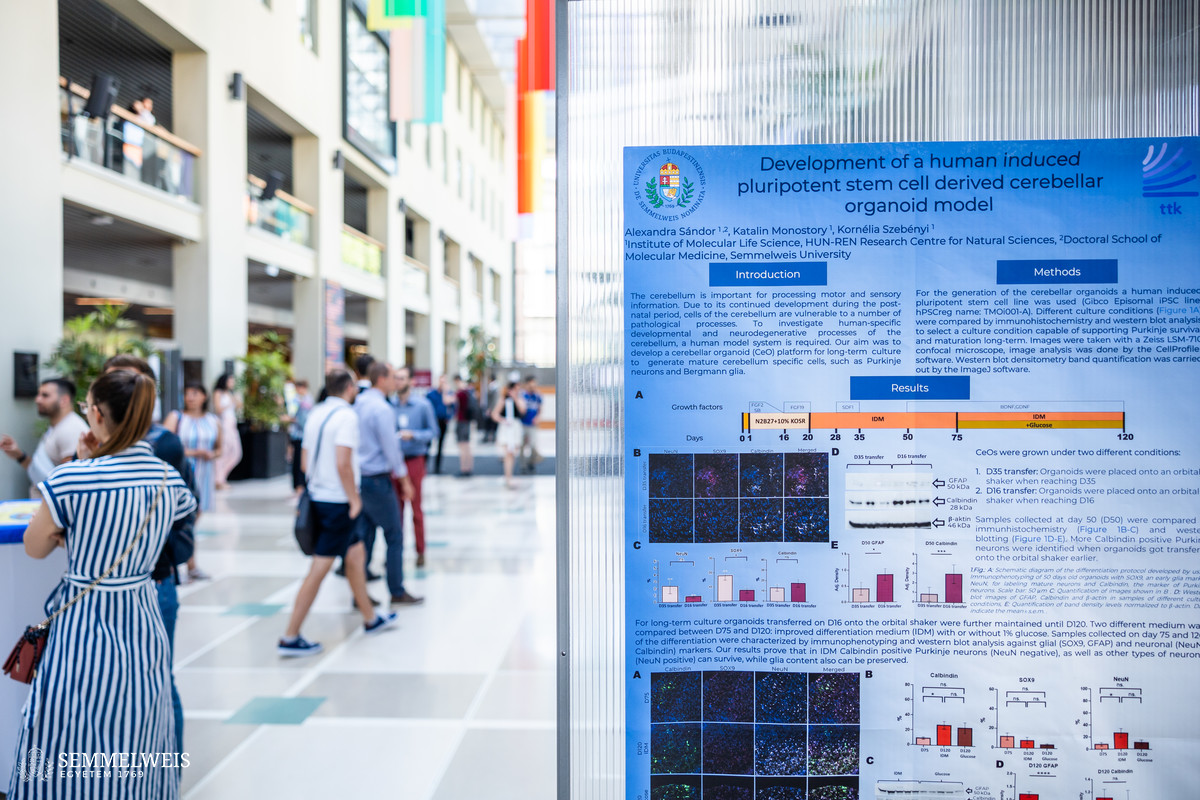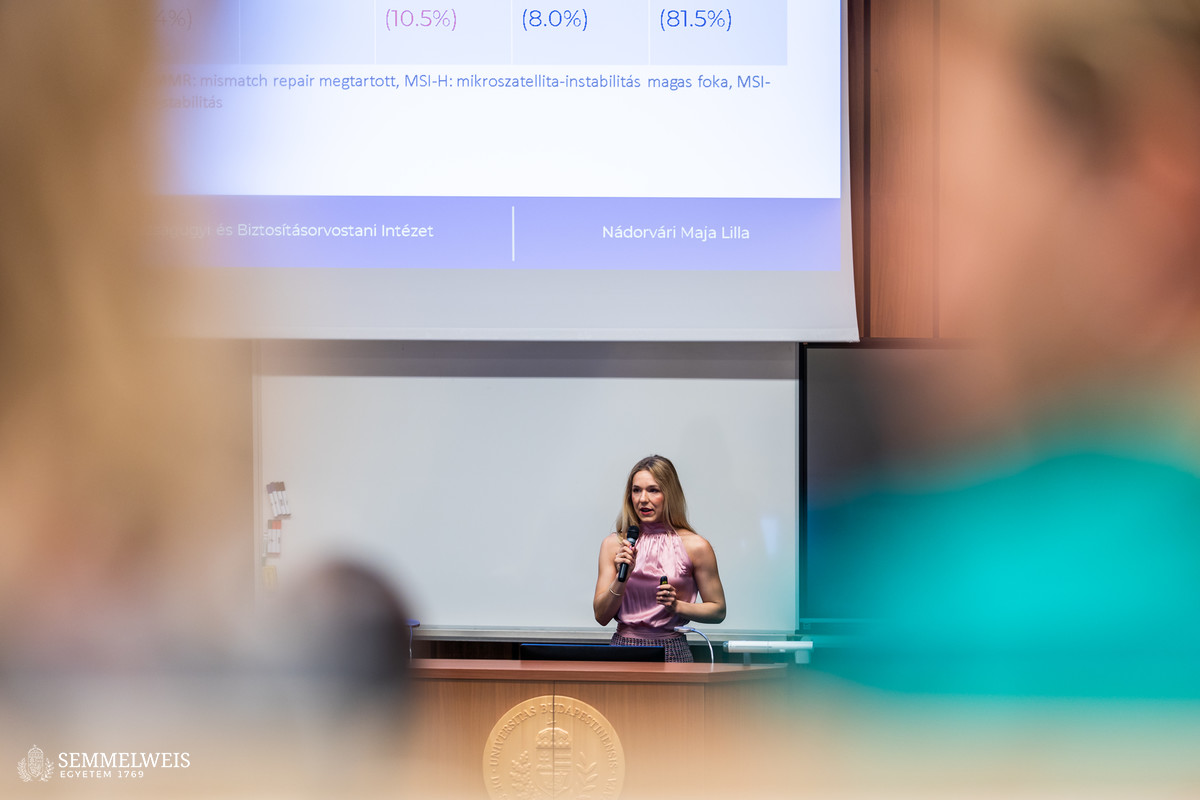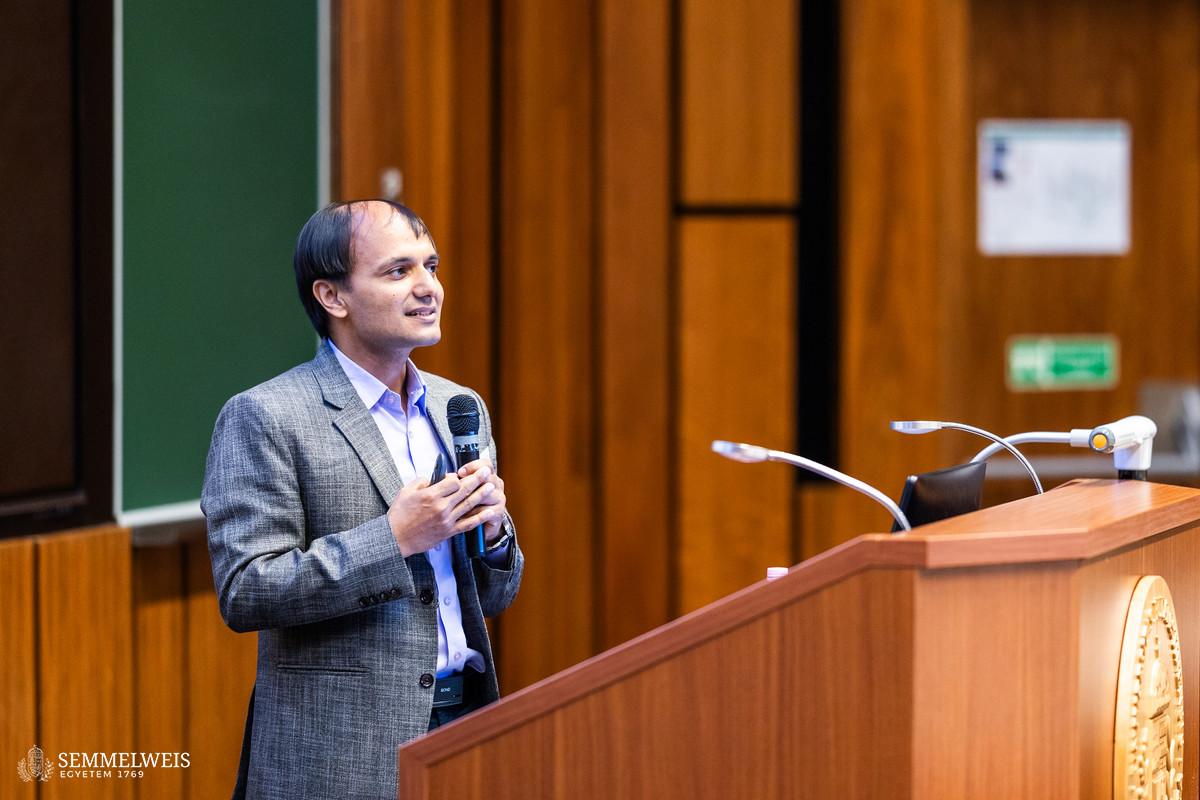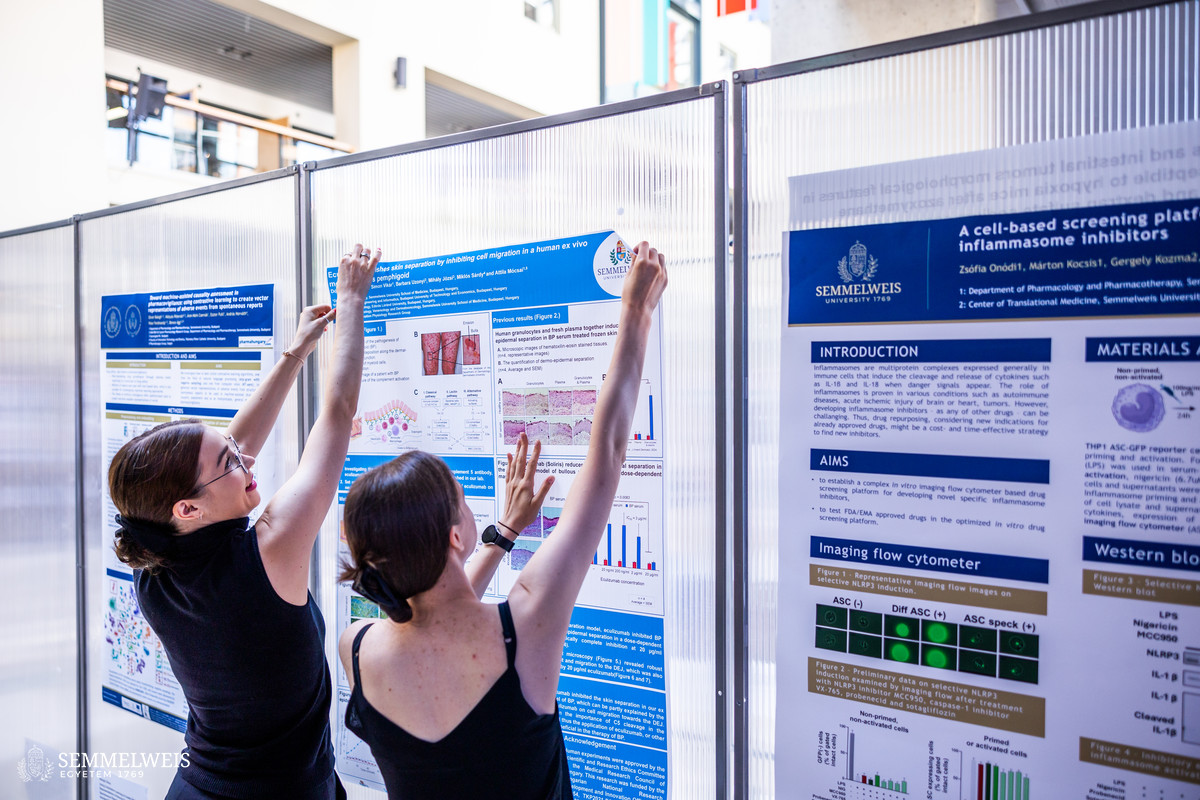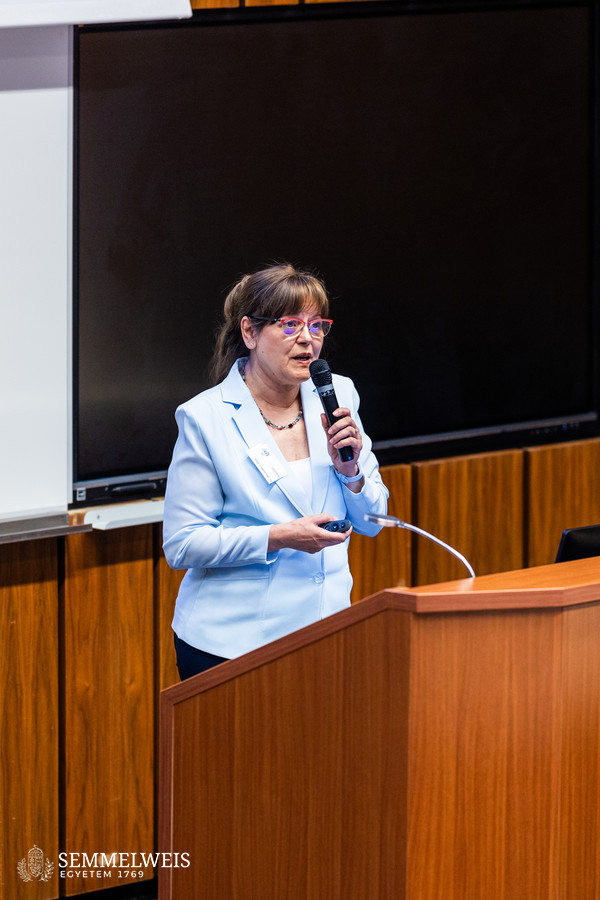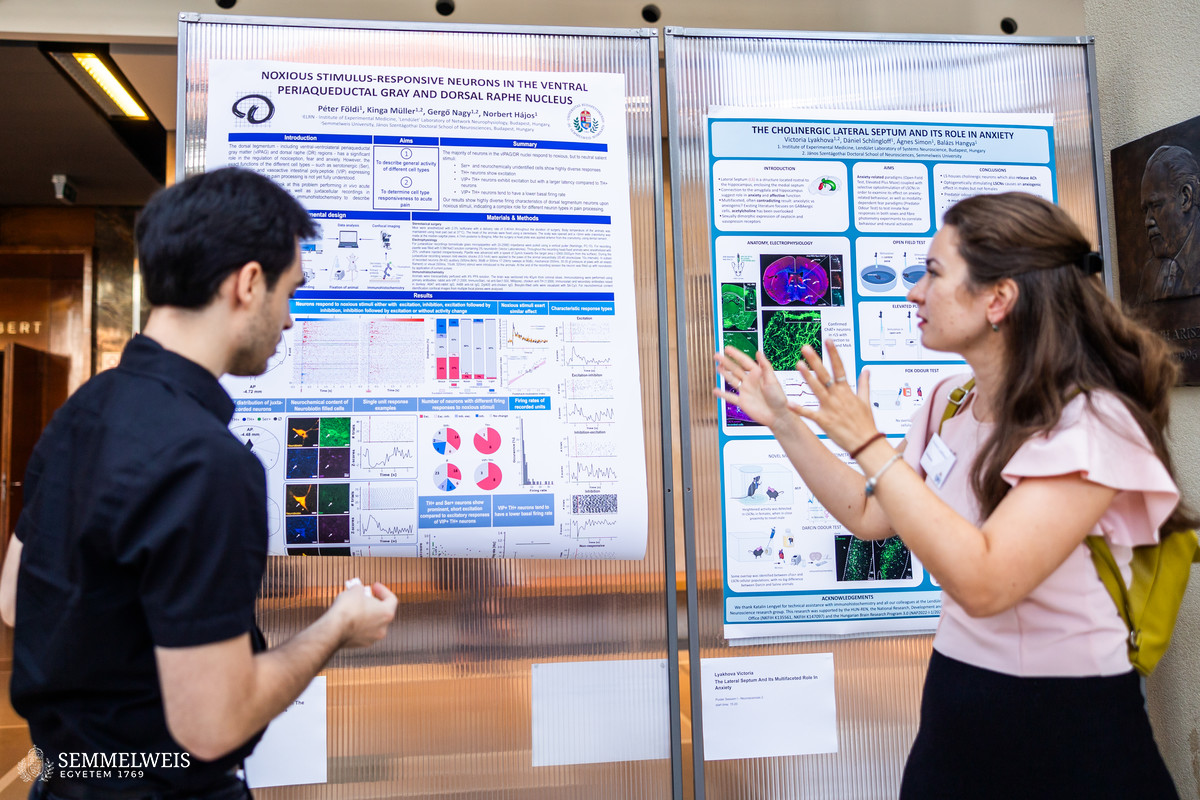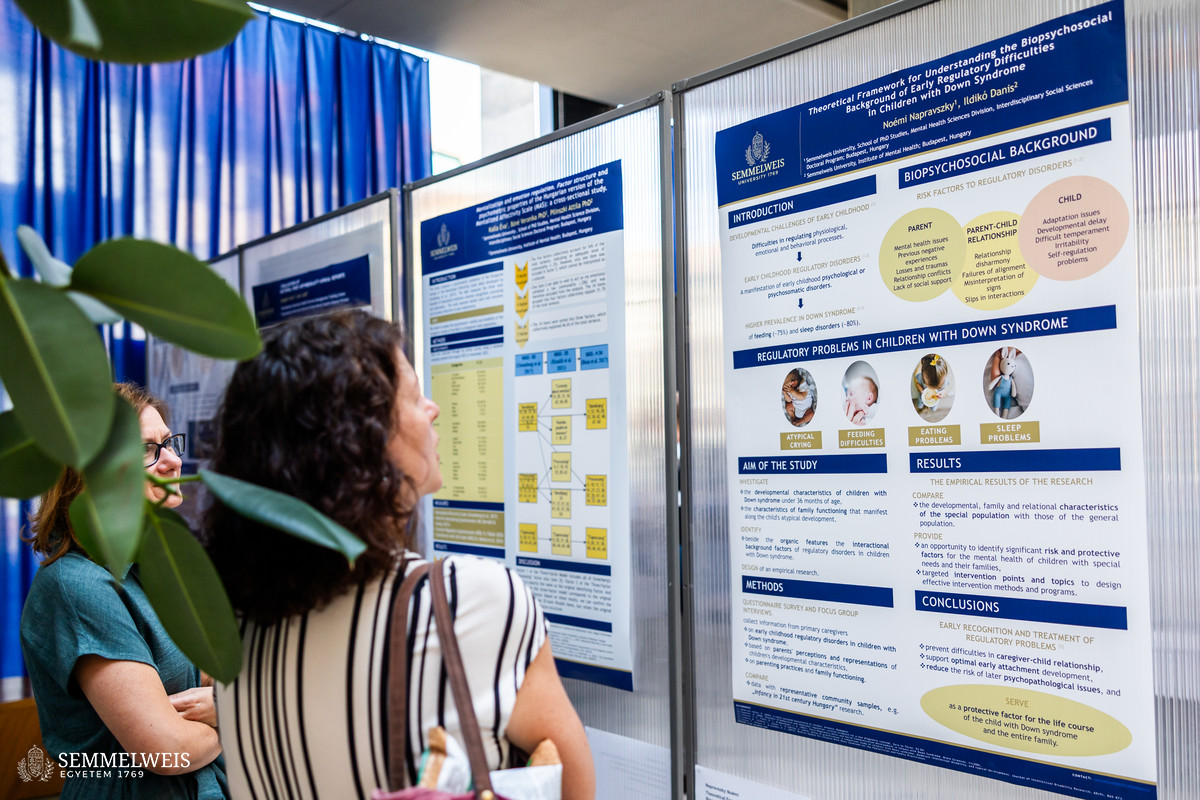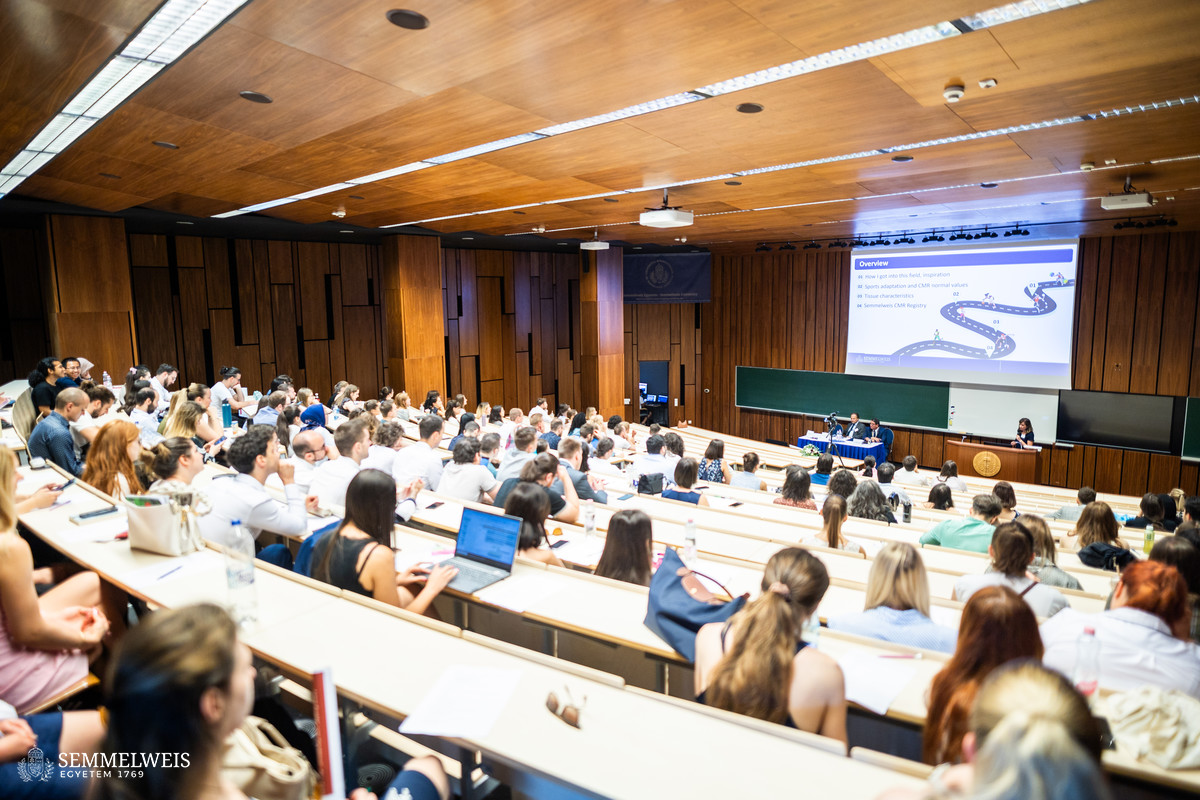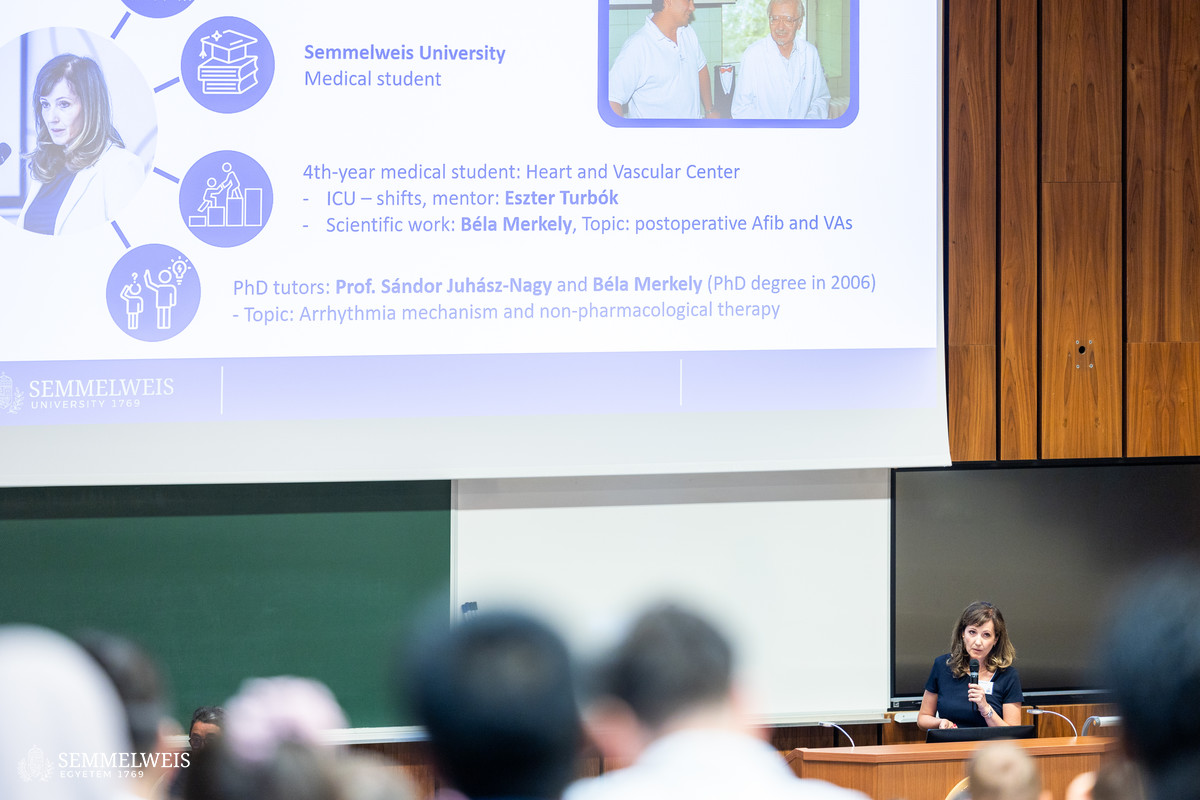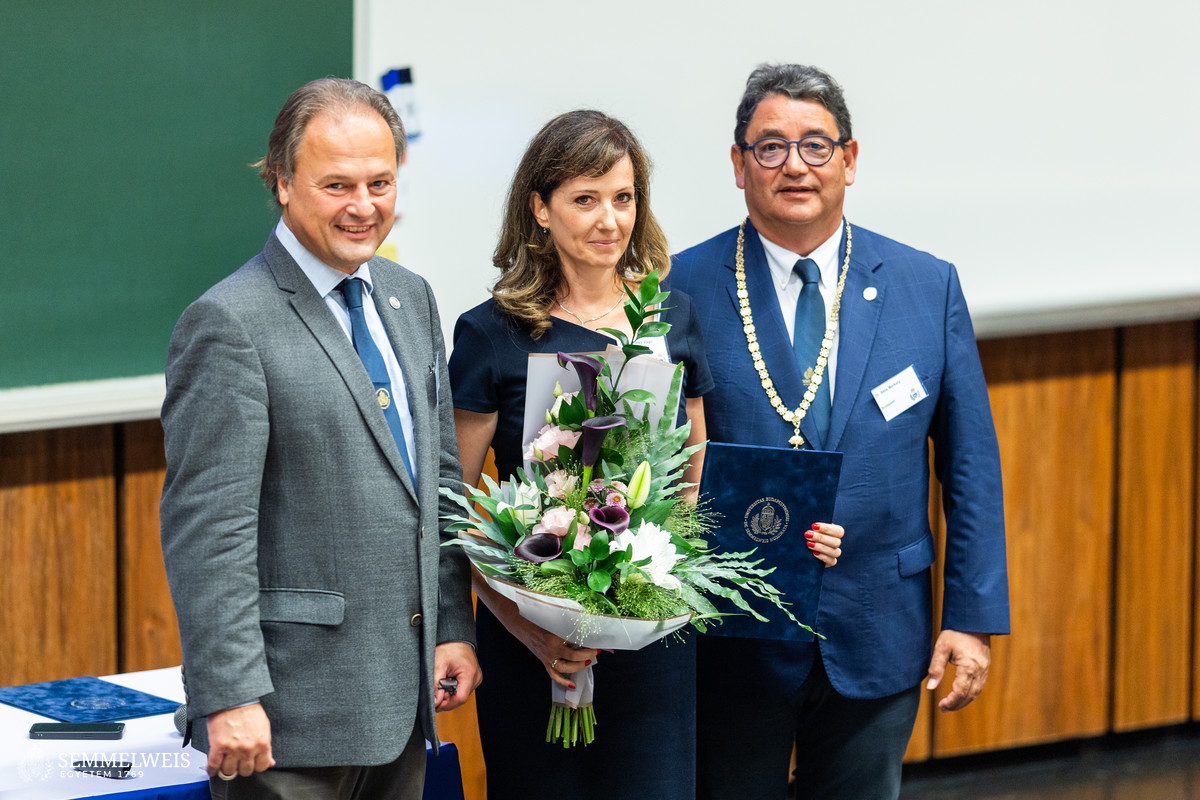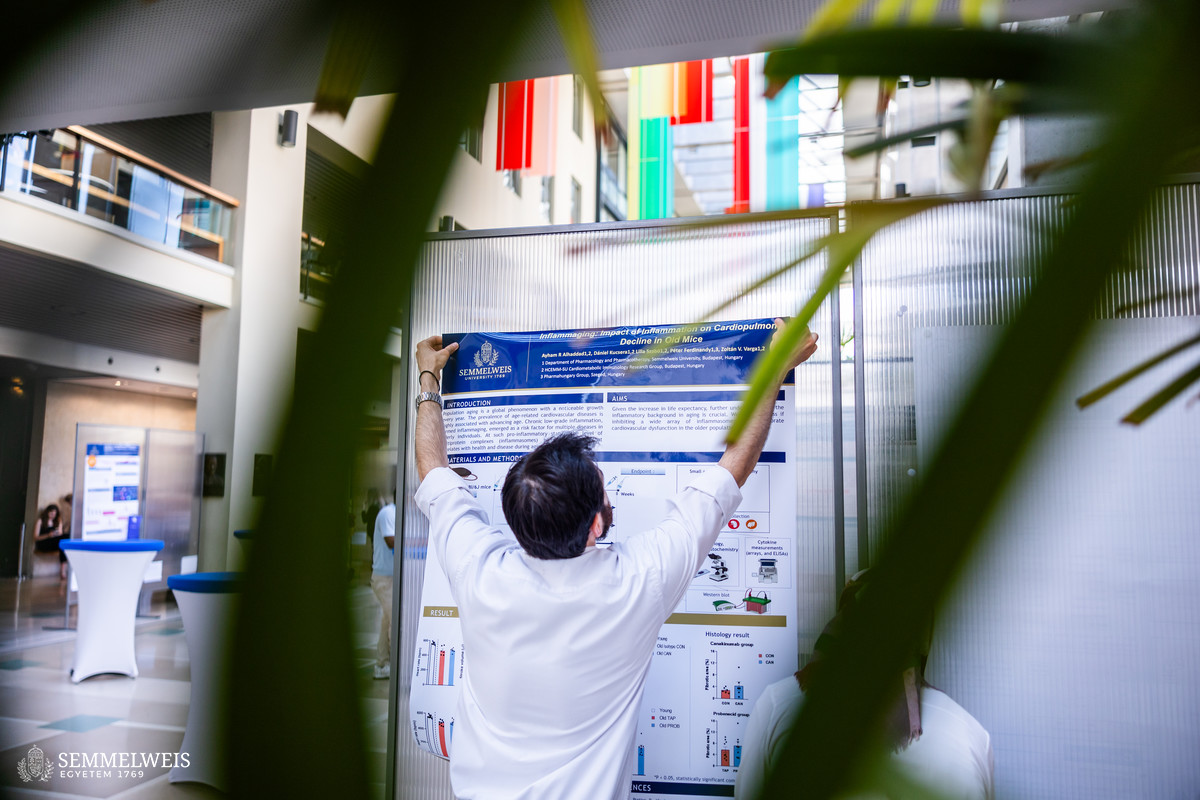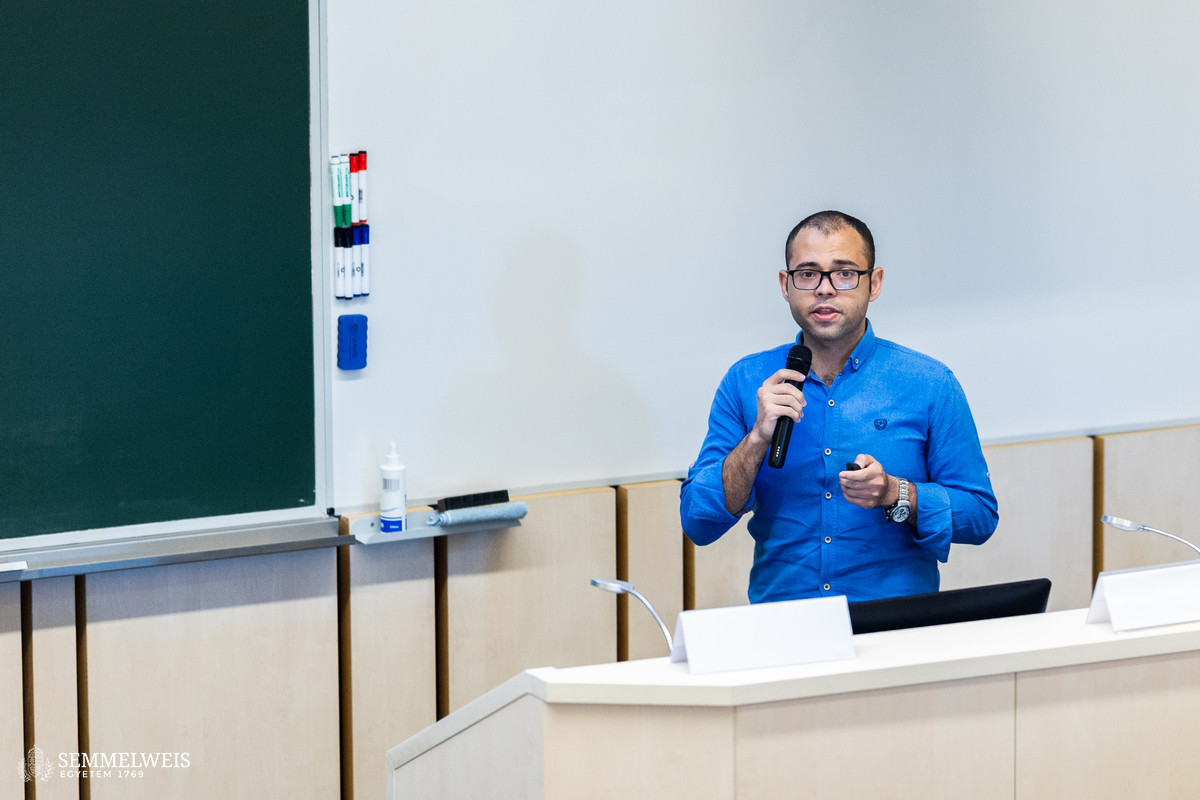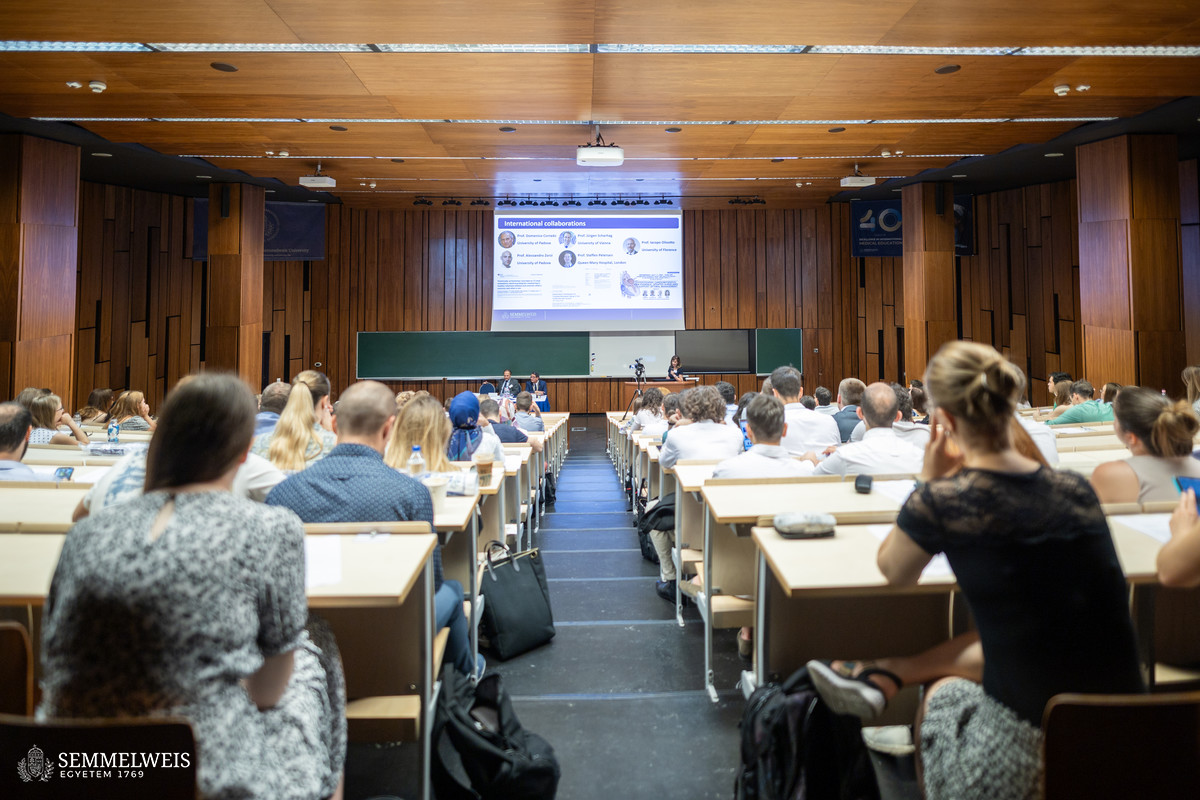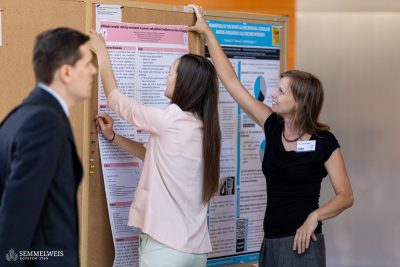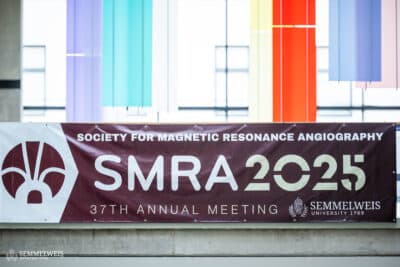The PhD Scientific Days are one of the key forums where students can practice their presentation skills, learn about each other’s research results, and network with peers. This year, 596 participants and referees attended the conference, 22 of whom came to Budapest in the framework of the European University for Well-Being Alliance (EUniWell).
“It is a rough road that leads to the heights of greatness,” quoted Dr. Béla Merkely the words of Seneca, the ancient Roman philosopher, which sound equally true two thousand years later, as today’s researchers share their research results, draw inspiration from each other’s work, and shape the future scientific directions together and are striving for excellence while overcoming difficulties, like their predecessors.
The rector noted that, in addition to the university’s namesake and prominent personalities, the success of recent Hungarian Nobel laureates also made it tangible for us how important perseverance, diligence, and steadfastness were. “If all this is combined with the right talent, then nothing is impossible,” he added.
Dr. Béla Merkely recalled that the number of PhD students had been steadily increasing in recent years, exceeding 1,000 in 50 doctoral programs in the academic year 2023/24, the 30-year jubilee of PhD training at the institution.
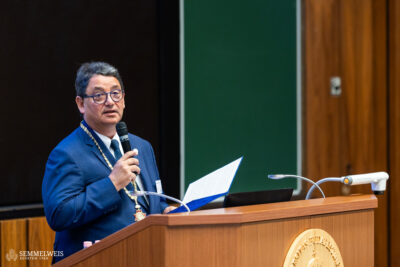 He reminded the audience that a researcher’s performance was not just a matter of individual ability, it required the right institutional background, support, and infrastructure. For that reason, the Doctoral College of Semmelweis University was unified last year. The college pays special attention to supporting PhD students and has a dedicated working group on programs to facilitate students in obtaining their PhD degrees, but the rector also highlighted the one-on-one coaching sessions, which were recently introduced to assist students in overcoming difficulties. As Dr. Béla Merkely emphasized, PhD training was not only a crucial stage in an academic career but also a unique opportunity for the outstanding talents. “You, who have reached this stage, are the cream of the crop,” he said in acknowledgment of the participants, adding that their work also contributed to the university’s performance in international rankings.
He reminded the audience that a researcher’s performance was not just a matter of individual ability, it required the right institutional background, support, and infrastructure. For that reason, the Doctoral College of Semmelweis University was unified last year. The college pays special attention to supporting PhD students and has a dedicated working group on programs to facilitate students in obtaining their PhD degrees, but the rector also highlighted the one-on-one coaching sessions, which were recently introduced to assist students in overcoming difficulties. As Dr. Béla Merkely emphasized, PhD training was not only a crucial stage in an academic career but also a unique opportunity for the outstanding talents. “You, who have reached this stage, are the cream of the crop,” he said in acknowledgment of the participants, adding that their work also contributed to the university’s performance in international rankings.
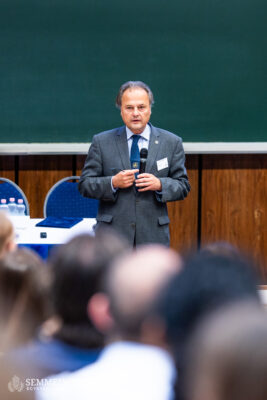 The lecture sessions were opened by Dr. Zoltán Benyó, President of the Doctoral Council. He recommended using the conference’s official application, which, in addition to the detailed program, the venue map, the presenters’ profile, and additional convenience features, also offered abstracts of the presentations to help participants navigate through the diverse programs. As he underlined, students attending the conference as a PhD course were to give an account of the knowledge acquired in the plenary lectures by filling in a test sheet.
The lecture sessions were opened by Dr. Zoltán Benyó, President of the Doctoral Council. He recommended using the conference’s official application, which, in addition to the detailed program, the venue map, the presenters’ profile, and additional convenience features, also offered abstracts of the presentations to help participants navigate through the diverse programs. As he underlined, students attending the conference as a PhD course were to give an account of the knowledge acquired in the plenary lectures by filling in a test sheet.
The four plenary lectures were delivered by Dr. Henriette Farkas, Professor at the Department of Internal Medicine and Hematology; Dr. István Katona, Head of the Molecular Neurobiology Research Group of the HUN-REN Institute of Experimental Medicine; Dr. Hajnalka Vágó, Professor at the Városmajor Heart and Vascular Center; and Dr. Balázs Hangya, Head of the Systems Neuroscience Research Group at the HUN-REN Institute of Experimental Medicine.
The two-day event featured 152 oral and 222 poster presentations. Sessions covered a broad spectrum of medicine from cardiology, dentistry, molecular and health sciences through mental health and neurology to oncology, pharmacology, surgery, and translational medicine. The presentations were evaluated by committees delegated by the 11 divisions of the Doctoral College; outstanding performances received acknowledgment.
Cardiovascular Medicine and Research 1.
Dr. Tamás Gergely – poster
Cardiovascular Medicine and Research 2.
Dr. Alexandra Fábián – poster
Cardiovascular Medicine and Research 3.
Dr. Liliána Szabó – poster
Tamás Kovács – poster
Cardiovascular Medicine and Research I.
Xocas Vázquez-Abuín – oral
Cardiovascular Medicine and Research II.
Ekaterina Melnikova – oral
Conservative Medicine
Dr. Bálint Vékony – oral
Dorottya Fésü – poster
Dental Research
Dr. Ákos Mikolicz – oral
Dr. Daniel Borbola – oral
Health Sciences 1.
Emese Farkas – poster
Health Sciences 2.
Viola Angyal – poster
Health Sciences I.
Péter Domján – oral
Health Sciences II.
Brigitta Füzesi – oral
Health Sciences III.
Dr. Réka Garai – oral
Mental Health Sciences 1.
Borbála Bányai – poster
Mental Health Sciences 2.
Dr. Nóra Máté-Horváth – poster
Mental Health Sciences I.
Walter Fontanini – oral
Mental Health Sciences II.
Dr. Csongor Tordai – oral
Mental Health Sciences III.
Dóra Török – oral
Molecular Medicine 1.
Zsuzsanna Adamecz – poster
Molecular Medicine 2.
Luca Sándor – poster
Ádám Tóth – poster
Molecular Medicine 3.
Péter Sasvári – poster
Molecular Medicine I.
Stella Márta Sági – oral
Molecular Medicine II.
Dr. Lukács Lesinszki – oral
Molecular Medicine III.
Dr. Olivér Závoti – oral
Neurosciences
Tamás Láng – oral
Neurosciences 1.
Dr. Krisztián Zichó – poster
Neurosciences 2.
Dr. Livio Tarchi – poster
Fruzsina Maácz – poster
Pathological and Oncological Sciences 1.
Melina Váradi – poster
Dalma Müller – poster
Pathological and Oncological Sciences 2.
Dr. Anna Bekő – poster
Pathological and Oncological Sciences I.
Zsófia Karancsi – oral
Pathological and Oncological Sciences II.
Dr. Botond Bukovszky – oral
Pathological and Oncological Sciences III.
Beáta Szeitz – oral
Pharmaceutical Sciences and Health Technologies 1.
Safaa Mohammed Omer Musa – poster
Zoltán Lincmajer – poster
Pharmaceutical Sciences and Health Technologies 2.
Dr. Bennet Y. Weber – poster
Pharmaceutical Sciences and Health Technologies I.
Zsófia Szász – oral
Pharmaceutical Sciences and Health Technologies II.
Thibaud Dauphin – oral
Surgical Medicine
Marcell Fontos – poster
Ágoston Jakab Pokorni – oral
Dr. Tamás Mezei – oral
Theoretical and Translational Medicine 1.
Dr. Szuzina Fazekas – poster
Theoretical and Translational Medicine 2.
Dr. Kinga Borsodi – poster
Theoretical and Translational Medicine I.
Syeda Mahak Zahra Bokhari – oral
Theoretical and Translational Medicine II.
Regina Norma Nagy – oral
Theoretical and Translational Medicine III.
Dr. Helga Balla – oral
Judit Szabados-Dőtsch
Photos by Bálint Barta – Semmelweis University
